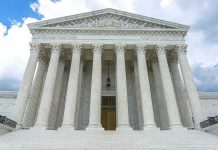
A New York judge has delayed a pivotal decision in Donald Trump’s hush money lawsuit, following a Supreme Court ruling on presidential immunity.
At a Glance
- Judge Merchan delays decision on Trump’s conviction until November 19.
- Supreme Court ruling on presidential immunity impacts the legal process.
- Trump’s legal team seeks dismissal to prevent governance interference.
- Prosecutors maintain the evidence’s validity despite new immunity ruling.
- Trump faces multiple concurrent legal challenges.
Judge Delays Critical Decision
Judge Juan Merchan postponed ruling on the dismissal of Donald Trump’s conviction in the hush money case, extending the timeline to November 19. This delay resulted from a consensus between Trump’s legal representatives and the prosecution, allowing more time to evaluate the impacts of a Supreme Court ruling granting presidents significant immunity from prosecution over official acts. Trump’s legal team argued this delay is essential to ensure that the ongoing legal proceedings do not compromise Trump’s future role as a leader.
The charges against Trump involve 34 counts of falsifying business records tied to payments intended to suppress allegations by Stormy Daniels about an alleged affair. Trump maintains his innocence, attributing the prosecution’s motivations to political ambition. This case introduces complexities never before encountered in presidential legal history, necessitating careful consideration of the factors at play.
JUST IN: Donald Trump's sentencing in the hush money case is postponed until September following the Supreme Court decision on presidential immunity, a New York judge has ruled https://t.co/kIOJ5heV4u
— CNN International (@cnni) July 2, 2024
Legal Arguments and Implications
Trump’s attorney, Emil Bove, emphasized that dismissing these charges is crucial to maintaining constitutional governance, stating that the actions “are necessary to avoid unconstitutional impediments to President Trump’s ability to govern.”
The Supreme Court’s recent ruling implies that presidents, past or present, have broad immunity from prosecution over acts undertaken as part of their official duties. Trump’s lawyers thus claim that the evidence presented to the jury was inappropriate under these new guidelines. However, prosecutors argue that the Supreme Court’s decision has no bearing on this case. They maintain that any evidence presented was both substantial and valid.
Broader Context and Ongoing Challenges
Besides the current case, Trump faces numerous legal challenges including federal indictments and activities surrounding his previous presidential campaign. The implications of the Supreme Court ruling could affect these ongoing cases, as each carries significant consequences for Trump’s potential political future. Additionally, the portrayal of these allegations as politically motivated has become a recurring theme from Trump’s spokespersons, advocating for an end to what they describe as weaponized justice.
With further deliberation scheduled, how this legal situation unfolds will have lasting impacts not only on Trump’s potential re-election but also on legal precedents concerning presidential conduct and related immunities. The eyes of both the public and legal experts remain watchfully focused as these debates and decisions continue to develop.







